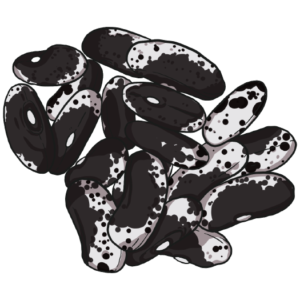Peanut
Seeds that are from here, grown by Indigenous seed savers and gardeners. Seeds that are from here, turtle island and have been shared with Teprine from Le Noyau seeds
Showing all 15 results
-

Wild Bergamot
$5.00 Add to cart -

Seneca Cornstalk beans (Colorado River Bean)
$5.00 Add to cart -

Abenaki Vermont Cranberry bean – climbing
$4.00 Read more -

Haricots Black Nightfall
$5.00 Add to cart -

Goose Gullet Bean
$5.00 Add to cart -

Vermont Cranberry Bush Bean
$5.00 Read more -

Cherokee Trail of Tears bean
$4.00 Read more -

Dolloff Beans
$4.00 Read more -

Iroquois Cornbread Beans
$5.25 Read more -

Kahnawake Pole beans
$5.00 Read more -

Skunk bean
$5.00 Read more -

Haricots Pepa de Zapallo (Tiger Eye)
$5.00 Add to cart -

Tene Beans
$4.00 Read more -

Dakota Black Popcorn
$5.00 Read more -

Tom Thumb Popcorn
$4.50 Add to cart


